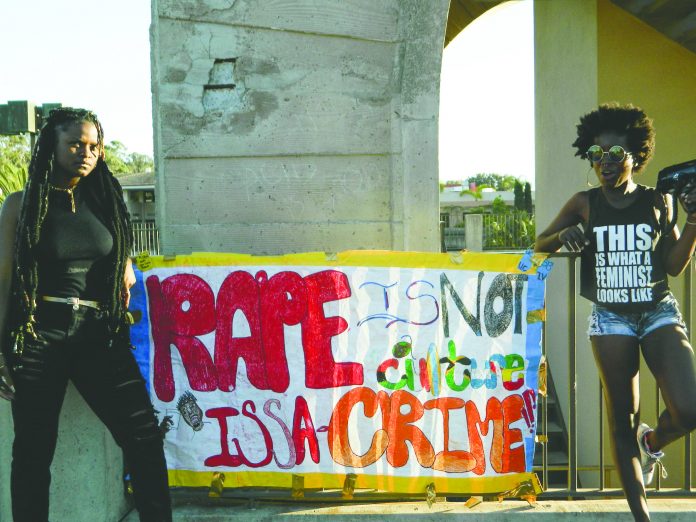
Arturo Samaniego and Shomik Mukherjee
National Beat Reporter and News Editor
Students took action on Thursday to respond to the United States Secretary of Education Betsy DeVos’ plans to scale back Barack Obama-era campus sexual assault regulations. Days before, California Governor Jerry Brown vetoed a state bill that would have affirmed those policies, which fall under the Title IX federal law, into state law.
Organizers hosted a National Day of Action For Survivors vigil on Thursday to support the #StopBetsy campaign, which was popularized in response to DeVos’ stated plans to change Title IX guidelines. The rollback would allow universities to use a “clear and convincing evidence” standard when adjudicating sexual assault claims, rather than a “preponderance of evidence” standard, DeVos told NBC in September.
These changes make the burden of proof much higher when finding accused students guilty, which would be “fairer for the accused,” DeVos told NBC. The current standard requires a 51 percent certainty of guilt, while “clear and convincing evidence” would be closer to 100 percent. The public court system uses a similar model to DeVos’ proposed standard, requiring that sexual assault suspects be proven guilty beyond reasonable doubt.
On Oct. 16, Gov. Brown vetoed SB 169, which would have affirmed existing policies into state law. State Senator Hannah-Beth Jackson (D-Santa Barbara) authored the bill to support Title IX regulations developed by the Obama administration, as outlined in a 2011 Dear Colleague Letter. The bill passed the California State Legislature in September.
Brown justified his veto in a published statement, saying that the rights to a due process of law shouldn’t be infringed upon.
“We have no insight into how many formal investigations result in expulsion, what circumstances lead to expulsion, or whether there is a disproportionate impact on race or ethnicity,” Brown said.
He further defended his actions by referring to his previous signing of a bill in 2016 that created the affirmative consent standard in California. Both parties involved in a sexual encounter must give a clear, verbal “yes” to establish affirmative consent.
Fourth year religious studies major Ro’Shawndra Earvin helped organize the National Day of Action for Survivors, which took place on Thursday at Storke Plaza. While the vigil was a national event, the University of California, Santa Barbara vigil was the only one in California, Earvin said.
Earvin addressed Brown’s veto of the bill right away.
“Seeing nonsense like that is what brings about events like this,” Earvin said. “Sexual assault is such a heinous crime and this is such a problem on university campuses. More people should be aware and less people should be afraid to speak out.”
Earvin had harsh criticisms for Brown, DeVos, and President Donald J. Trump alike.
“These are the people that we face,” she said. “I just pray that students realize their power. If there were no students, there would be no university.”
In May, Earvin led a sit-in at Chancellor Henry T. Yang’s office to demand changes to the University of California, Santa Barbara’s sexual assault policies. Earvin spoke on behalf of her own case, in which she said she was drugged and raped. She said law enforcement had not properly investigated the incident.
The sit-in lasted eight hours, after which Yang and other university administrators signed the list of demands, which included more rigorous university attendance to the needs of sexual assault survivors, as well as a reimbursement of Earvin’s tuition debt.
















